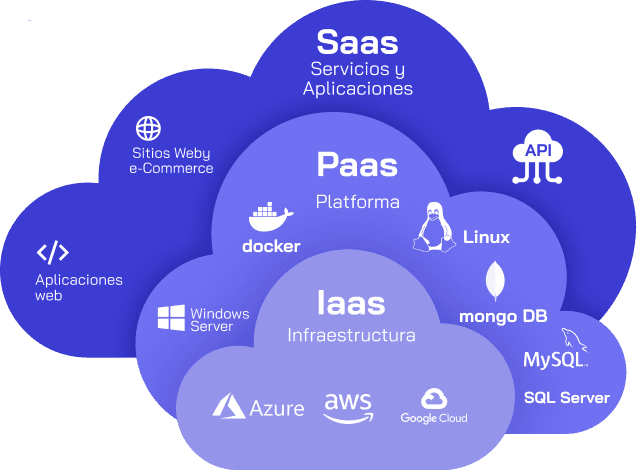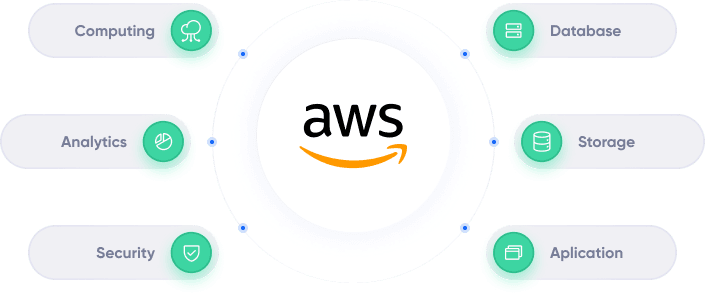Mary Burko
Content Writer, Researcher
Cloud Computing Services for Startups
2024-04-02
There are many challenges and opportunities that startups face today due to the rapidly evolving digital landscape. One of the most critical decisions they must make early on is leveraging technology effectively to drive growth while managing costs. Cloud computing services offer a compelling solution to this dilemma. Let’s review the advantages of cloud computing for startups as well as the key services that go a long way toward helping them succeed.
Advantages of Cloud Computing for Startups
Startups operate in a dynamic environment where agility and flexibility are paramount. Cloud computing offers several distinct advantages that align perfectly with the needs of these burgeoning enterprises:
Cost-effectiveness: With cloud computing, startups can avoid hefty upfront investments in infrastructure and hardware. Instead, they pay for what they use monthly, enabling significant cost savings.
Scalability: As startups grow, their computing needs evolve. Cloud computing services allow for seamless scalability, enabling startups to easily adjust resources up or down based on demand without disruptions.
Accessibility: With cloud-based solutions, startups can work remotely and collaborate across borders with ease.
Flexibility: Cloud computing offers various services and deployment models, allowing startups to tailor solutions to their specific needs and preferences.
Security: Contrary to common misconceptions, cloud computing can offer robust security measures, often surpassing what startups could achieve independently. Leading cloud providers invest heavily in security protocols, data encryption, and compliance certifications.
Key Cloud Computing Services for Startups

For startups looking to harness their potential, it is crucial to understand the types of cloud computing services available. Here are the three primary models:
Infrastructure as a Service (IaaS)
A virtualized computing resource, such as servers, storage, and networking, is provided as a service over the Internet. Startups can leverage IaaS to deploy and scale infrastructure quickly without physical hardware.
Platform as a Service (PaaS)
Application development, testing, and deployment are all possible with PaaS. Startups can focus on innovation by abstracting infrastructure management from PaaS.
Software as a Service (SaaS)
SaaS is a subscription-based service that delivers software applications over the Internet. Startups can access a wide array of productivity tools, collaboration platforms, and business applications without the burden of installation or maintenance.
Best Practices for Selecting Cloud Computing Services
Selecting the right cloud computing services requires careful consideration and strategic planning. Here are some best practices to guide startups through the process:
Assess Startup Requirements: Begin by identifying the specific needs and goals of your startup, considering factors such as workload types, scalability requirements, and budget constraints.
Research Available Options: Conduct thorough research to evaluate cloud providers and service offerings. Consider factors such as reliability, performance, support, and pricing models.
Consider Scalability and Future Needs: Choose cloud services that can accommodate your startup's growth trajectory.
Evaluate Security Features: Prioritize security when selecting cloud services. In order to ensure the safety of your sensitive information, you should examine the provider's security protocols, compliance certifications, and data protection measures.
Calculate Costs and Budget Constraints: Understand the cost implications of various cloud services, including upfront expenses, ongoing operational costs, and potential hidden fees. Create a budget that aligns with your startup's financial resources and objectives.
Best Cloud Service Providers for Startups
Choosing a reliable and reputable provider of cloud computing services is essential when you're considering cloud computing for your startup. Here are some of the top cloud service providers that startups can consider:
Amazon Web Services (AWS)

As the world's most popular cloud computing platform, Amazon Web Services includes computing power, storage, database management, artificial intelligence, and more. With a global infrastructure footprint and a wide range of features and tools, AWS is a popular choice for startups seeking scalability, reliability, and flexibility.
Microsoft Azure

Microsoft Azure is another prominent cloud computing platform. Application developers can use it to build, deploy, and manage applications and services. With integration with Microsoft's ecosystem of products and services, Azure offers startups a seamless experience for developing and scaling their applications.
Google Cloud Platform (GCP)

GCP offers cloud computing services, including computing, storage, databases, machine learning, and more. Startups can build and scale their applications efficiently with GCP's tools and resources that focus on innovation and cutting-edge technologies.
IBM Cloud

With IBM Cloud, you can choose from the cloud computing services, including infrastructure as platform as a service (PaaS), a service (IaaS), and software as a service (SaaS). With a strong focus on security, compliance, and enterprise-grade solutions, IBM Cloud is well-suited for startups operating in regulated industries or requiring advanced security features.
Cloudflare

Providing security, performance, and reliability services for websites and applications, Cloudflare is a global leader in cloud computing. Providing startups with a suite of products and a global network of data centers, Cloudflare helps them protect and enhance their online presence.
Oracle Cloud Infrastructure (OCI)

OCI offers comprehensive cloud computing services, including compute, storage, networking, and database services. Providing startups with scalability, reliability, and performance, OCI's infrastructure allows them to build and deploy mission-critical applications with confidence.
When choosing a cloud service provider for your startup, consider reliability, performance, security, scalability, pricing, and customer support factors. Evaluate each provider's offerings and determine which one best meets your startup's unique needs and objectives.
Successful Startups Utilizing Cloud Computing
Airbnb
Airbnb, the world's largest online marketplace for lodging and vacation rentals, relies heavily on cloud computing to power its platform. Initially, Airbnb faced challenges in managing its rapidly growing infrastructure and meeting fluctuating demand. However, by transitioning to a cloud-first approach and utilizing AWS for hosting, storage, and computing resources, Airbnb was able to scale efficiently, reduce costs, and focus on enhancing the user experience. The flexibility of cloud computing has allowed Airbnb to innovate rapidly and expand its services globally.
Dropbox
Businesses and individuals are managing and sharing digital assets more effectively thanks to Dropbox, a cloud-based file storage and synchronization service. Users can access, collaborate, and store files from any device via Dropbox's cloud-based platform, which is built on top of cloud infrastructure. Leveraging cloud computing resources from providers like AWS and Google Cloud Platform, Dropbox has scaled its service globally, handled massive amounts of data, and innovated new features to meet evolving user needs.
Stripe
Stripe, a fintech startup that provides payment processing solutions for online businesses, relies on cloud computing to power its infrastructure and deliver secure, reliable payment services to millions of customers worldwide. By leveraging cloud-based technologies, including AWS and Google Cloud Platform, Stripe can process transactions quickly and securely, scale its infrastructure in real-time to meet fluctuating demand, and innovate new payment solutions to stay ahead of the competition.
Challenges and Solutions in Implementing Cloud Computing
While cloud computing offers numerous benefits, startups may encounter challenges during implementation:
Integration with Existing Systems: Integrating cloud services with legacy systems can pose compatibility issues. Startups should prioritize seamless integration and data interoperability to ensure a smooth transition.
Data Migration and Management: To avoid data loss or corruption, data migration to the cloud needs to be planned and executed carefully. Startups should develop a comprehensive migration strategy and leverage data management tools to maintain data integrity and accessibility.
Security Risks and Compliance Issues: Protecting sensitive data in the cloud requires robust security measures and compliance with regulatory requirements. Startups should implement multi-layered security protocols, encryption techniques, and regular audits to safeguard their assets and maintain regulatory compliance.
Addressing Scalability Challenges: While cloud computing enables scalability, startups must proactively anticipate and address potential scalability challenges. By designing scalable architectures and leveraging auto-scaling capabilities, startups can ensure consistent performance and availability as they grow.
Training and Upskilling Employees: Adopting cloud technologies necessitates training and upskilling employees to utilize these tools effectively. Startups should invest in comprehensive training programs and provide ongoing support to empower employees with the skills and knowledge needed to leverage cloud computing effectively.
Final thoughts
In conclusion, cloud computing services offer many opportunities for startups to innovate, grow, and succeed in today's competitive landscape. Startups can maximize efficiency, agility, and scalability by understanding the advantages of cloud computing, choosing the right services, and implementing best practices. By carefully planning and strategically executing, startups can leverage cloud computing as a catalyst for sustainable growth.
